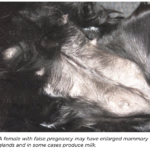What Food To Avoid For Dog With Skin Allergies
Dogs are often referred to as man’s best friend for a reason. They offer us companionship, loyalty, and unconditional love. As dog owners, we want nothing but the best for our furry friends. However, skin allergies are a common problem among dogs that can cause them discomfort and distress. One of the main ways to manage skin allergies in dogs is by controlling their diet. In this article, we will discuss what food to avoid for dogs with skin allergies.
Skin allergies in dogs can be caused by a variety of factors such as fleas, dust mites, pollen, and certain foods. Dogs with skin allergies often show symptoms such as itching, redness, rashes, and hair loss. These symptoms can lead to secondary infections if left untreated.
Avoiding certain foods can help alleviate your dog’s skin allergy symptoms. Here are some foods you should avoid feeding your dog if they have skin allergies:
1. Grains
Many commercial dog foods contain grains such as wheat, corn, and soybeans. These grains are often used as fillers and can cause an allergic reaction in some dogs. If your dog has a grain allergy, it is best to feed them grain-free dog food.
2. Dairy products
Dairy products such as milk and cheese contain lactose which can be difficult for some dogs to digest. Dogs with lactose intolerance may experience digestive issues such as diarrhea, vomiting, and gas.
3. Beef
Beef is another common allergen for dogs with skin allergies. Some dogs may be allergic to the protein found in beef which can lead to skin irritation and other allergic reactions.
4. Chicken
Chicken is another common allergen for dogs with skin allergies. Some dogs may be allergic to the protein found in chicken which can lead to skin irritation and other allergic reactions.
5. Fish
Fish is also a potential allergen for dogs with skin allergies. Some dogs may be allergic to the protein found in fish which can lead to skin irritation and other allergic reactions.
6. Preservatives
Preservatives such as BHA, BHT, and ethoxyquin are often added to commercial dog food to extend their shelf life. However, these preservatives can cause allergic reactions in some dogs.
It is important to note that every dog is different, and what works for one dog may not work for another. It is best to consult with your veterinarian before making any changes to your dog’s diet.
In addition to avoiding certain foods, there are other steps you can take to manage your dog’s skin allergies. Regular grooming, using hypoallergenic shampoo, and keeping your home clean can all help alleviate your dog’s symptoms.
In conclusion, skin allergies in dogs can be a frustrating and uncomfortable experience for both the dog and the owner. Controlling their diet by avoiding certain foods can help alleviate their symptoms and improve their quality of life. Remember to consult with your veterinarian before making any changes to your dog’s diet or treatment plan. With proper care and attention, you can help your furry friend live a happy and healthy life free from skin allergies.



